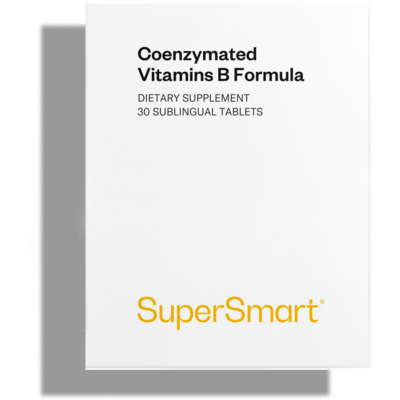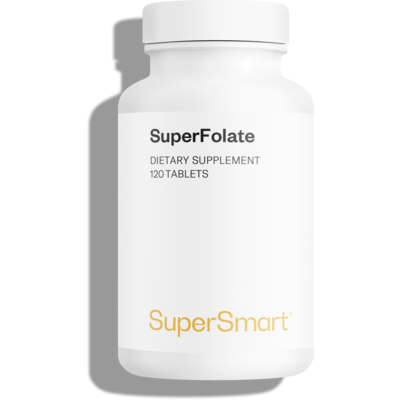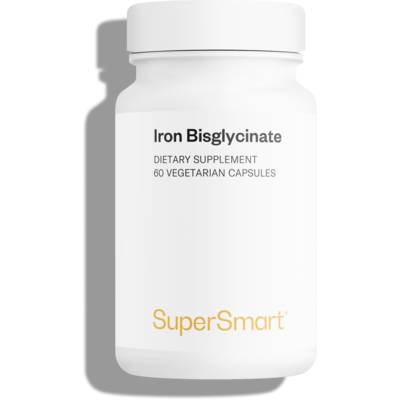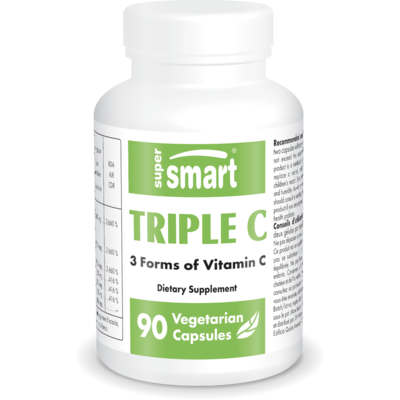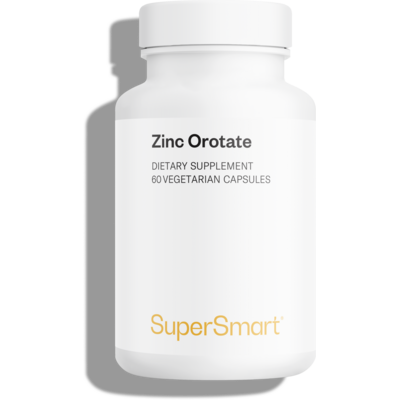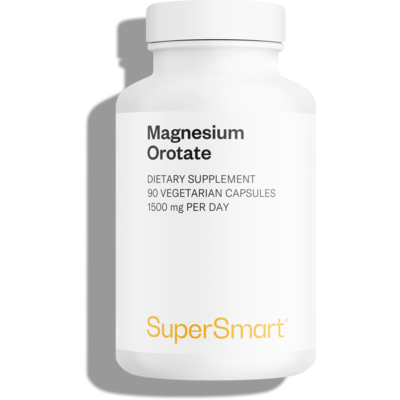Micronutrients: definition, role and dietary sources
While they represent only a tiny part our nutritional needs, micronutrients are central to vital functions. What do they do and where are they found?

What role do micronutrients play?
A micronutrient is a nutrient with no energy value (that does not provide any calories), which is present in small amounts in the body, yet is nonetheless essential for life (1). Depending on its properties, a micronutrient can play a role in growth, metabolism, immunity or reproduction.
Almost all micronutrients are provided directly by food, the body being largely unable to synthesise them. Our daily requirements remain relatively low, in the region of a few tens of mcg or mg, though intake needs to be consistent in order to maintain the integrity of the body.
Micronutrients and macronutrients: not to be confused
Macronutrient: definition
Macronutrients differ from micronutrients not only in their clear predominance in our daily nutrient intake (which amounts to several tens of grams), but also in their ability to provide energy(2). There are three types of macronutrient: carbohydrates, protein and fats.
Role of macronutrients
Carbohydrates are the preferred fuel of cells (3). Protein is, amongst others, the ‘cement’ of living organisms, providing the body with a structural framework and playing a role in maintaining muscle mass (4). Fats are a component of cell membranes and are also used by the body as a source of energy (5).
Essential micronutrients: what are they?
Vitamins
There are 13 vitamins, divided into two groups: water-soluble and fat-soluble (6).
The water-soluble vitamins include vitamin C (which contributes to normal collagen production and immune system function) as well as all the B group vitamins involved in various metabolic functions (7-8).
The fat-soluble group includes vitamin A (normal vision), vitamin E (protection against oxidative stress), vitamin K (normal blood-clotting) and vitamin D (9-11). Vitamin D deficiency is widespread in many parts of the world due to there being few dietary sources and the fact that many people have low exposure to the sun in winter (12).
Vitamin deficiencies manifest in diverse clinical symptoms with consequences for health of varying severity. Expectant mothers need to be particularly careful to ensure their increased needs for vitamin B9 are met, as it contributes to normal growth of the fetus (13). And vegans, who have excluded meat and animal-source foods from their diet, are at risk of vitamin B12 deficiency (14).
Minerals
Minerals are a group of inorganic elements which are necessary for maintaining functions in the body. They include calcium, phosphorus, potassium, sodium and magnesium (15).
Involved in many biochemical reactions, minerals play a role in a wide variety of areas such as bone consolidation, regulation ofbodily fluids, muscle contraction, transmission of nerve impulses and mental balance(16-17).
It’s worth noting that certain factors tend to accelerate mineral loss: stress (lower magnesium levels), kidney disease and/or diuretic treatments (loss of potassium), advancing age or intestinal malabsorption (impaired calcium uptake) (18-20)…
Trace elements
Compared with minerals, trace elements are only required by the body in very small amounts (measurable in micrograms). They primarily encompass iron, zinc, copper, selenium, manganese, iodine, chromium, cobalt, fluoride and molybdenum (21).
Though we need very little of them, trace elements are nonetheless crucial. For example, iron contributes to normal red blood cell and hemoglobin formation, zinc helps maintain healthy skin, and selenium is important for spermatogenesis and thyroid function(22-24).
Lack of iron remains the most common trace element deficiency across the world. Menstruating and pregnant women are particularly affected as are the elderly and vegetarians. Persistent deficiency can lead to anemia, which manifests in fatigue, muscle weakness and shortness of breath (25).
Essential fatty acids
Fatty acids are the building blocks of large fat molecules. Those termed ‘essential’, are the ones the body cannot produce itself but which are absolutely vital (26-27).
There are two main categories of essential fatty acids:
- omega-6 polyunsaturated fatty acids, the essential precursor of which is linoleic acid (LA).
- omega-3 polyunsaturated fatty acids, the essential precursor of which is alpha-linolenic acid (ALA).
Found exclusively in plant-source foods (flax, rapeseed, nuts …), ALA theoretically enables the body to synthesise eicosapentaenoic acid (EPA) and docosahexaenoic acid (DHA). Protectors of cardiovascular health, both support normal cardiac function and help maintain normal blood pressure(28).
However, this conversion is rarely sufficient to meet the body’s needs (29). EPA and DHA are therefore classed as semi-essential and for the most part, need to be provided by the diet, in particular from oily fish (sardines, mackerel, anchovies…) (30).
Essential amino acids
In the same way that fatty acids make up lipids, amino acids determine the structure of protein.
Amino acids are therefore involved in a wide variety of biological processes, from muscle tissue renewal to neurotransmitter synthesis and antibody production.
Of the 20 existing amino acids, only 9 are considered essential: leucine, isoleucine, valine, lysine, phenylalanine, threonine, tryptophan and histidine (31).
Animal protein sources (meat, poultry, eggs …) contain all the essential amino acids (32). Pulses and grains, on the other hand, are normally lacking in methionine and lysine, so vegetarians would benefit from combining them to obtain protein complementarity.
Micronutrients: foods to prioritise
To benefit from a wide range of micronutrients and achieve the recommended daily amounts set by health authorities, you need to eat a varied, balanced diet, with as few processed foods as possible.
Vitamins are more or less present in all food categories. Vitamin A alone, for example, is found in yellow-orange fruits and vegetables as well as in offal and dairy products (33)!
Mineral-wise, wholegrain rice, nuts and seeds, pulses and darkchocolate are the best sources of magnesium (34). Calcium is not only found in milk: it’s also in sardines, almonds, and cabbage (35).
In terms of trace elements, oysters are the no. 1 source of zinc along with seafood and red meat (36). The latter is also a good source of iron, as is black pudding and cocoa (37). There’s a significant amount of selenium in fish, calves’ liver, wholemeal bread and Brazil nuts (38).
SuperSmart ADVICE
References
- Shenkin A. Micronutrients in health and disease. Postgrad Med J. 2006 Sep;82(971):559-67. doi: 10.1136/pgmj.2006.047670. PMID: 16954450; PMCID: PMC2585731.
- Savarino G, Corsello A, Corsello G. Macronutrient balance and micronutrient amounts through growth and development. Ital J Pediatr. 2021 May 8;47(1):109. doi: 10.1186/s13052-021-01061-0. PMID: 33964956; PMCID: PMC8106138.
- Slavin J, Carlson J. Carbohydrates. Adv Nutr. 2014 Nov 14;5(6):760-1. doi: 10.3945/an.114.006163. PMID: 25398736; PMCID: PMC4224210.
- Carbone JW, Pasiakos SM. Dietary Protein and Muscle Mass: Translating Science to Application and Health Benefit. 2019 May 22;11(5):1136. doi: 10.3390/nu11051136. PMID: 31121843; PMCID: PMC6566799.
- Cooper GM. The Cell: A Molecular Approach. 2nd edition. Sunderland (MA): Sinauer Associates; 2000. Cell Membranes. Available from: https://www.ncbi.nlm.nih.gov/books/NBK9928/
- Reddy P, Jialal I. Biochemistry, Fat Soluble Vitamins. [Updated 2022 Sep 19]. In: StatPearls [Internet]. Treasure Island (FL): StatPearls Publishing; 2023 Jan-. Available from: https://www.ncbi.nlm.nih.gov/books/NBK534869/
- Abdullah M, Jamil RT, Attia FN. Vitamin C (Ascorbic Acid) [Updated 2022 Oct 25]. In: StatPearls [Internet]. Treasure Island (FL): StatPearls Publishing; 2023 Jan-. Available from: https://www.ncbi.nlm.nih.gov/books/NBK499877/
- Hanna M, Jaqua E, Nguyen V, Clay J. B Vitamins: Functions and Uses in Medicine. Perm J. 2022 Jun 29;26(2):89-97. doi: 10.7812/TPP/21.204. Epub 2022 Jun 17. PMID: 35933667; PMCID: PMC9662251.
- McEldrew EP, Lopez MJ, Milstein H. Vitamin A. [Updated 2022 Jul 11]. In: StatPearls [Internet]. Treasure Island (FL): StatPearls Publishing; 2023 Jan-. Available from: https://www.ncbi.nlm.nih.gov/books/NBK482362/
- Medina J, Gupta V. Vitamin E. [Updated 2022 May 13]. In: StatPearls [Internet]. Treasure Island (FL): StatPearls Publishing; 2023 Jan-. Available from: https://www.ncbi.nlm.nih.gov/books/NBK557737/
- Imbrescia K, Moszczynski Z. Vitamin K. [Updated 2023 Feb 13]. In: StatPearls [Internet]. Treasure Island (FL): StatPearls Publishing; 2023 Jan-. Available from: https://www.ncbi.nlm.nih.gov/books/NBK551578/
- Sizar O, Khare S, Goyal A, et al. Vitamin D Deficiency. [Updated 2023 Feb 19]. In: StatPearls [Internet]. Treasure Island (FL): StatPearls Publishing; 2023 Jan-. Available from: https://www.ncbi.nlm.nih.gov/books/NBK532266/
- Merrell BJ, McMurry JP. Folic Acid. [Updated 2022 Dec 21]. In: StatPearls [Internet]. Treasure Island (FL): StatPearls Publishing; 2023 Jan-. Available from: https://www.ncbi.nlm.nih.gov/books/NBK554487/
- Lederer AK, Hannibal L, Hettich M, Behringer S, Spiekerkoetter U, Steinborn C, Gründemann C, Zimmermann-Klemd AM, Müller A, Simmet T, Schmiech M, Maul-Pavicic A, Samstag Y, Huber R. Vitamin B12 Status Upon Short-Term Intervention with a Vegan Diet-A Randomized Controlled Trial in Healthy Participants. 2019 Nov 18;11(11):2815. doi: 10.3390/nu11112815. PMID: 31752105; PMCID: PMC6893687.
- National Research Council (US) Committee on Diet and Health. Diet and Health: Implications for Reducing Chronic Disease Risk. Washington (DC): National Academies Press (US); 1989. 13, Minerals. Available from: https://www.ncbi.nlm.nih.gov/books/NBK218735/
- Xue W, You J, Su Y, Wang Q. The Effect of Magnesium Deficiency on Neurological Disorders: A Narrative Review Article. Iran J Public Health. 2019 Mar;48(3):379-387. PMID: 31223564; PMCID: PMC6570791.
- Schiefermeier-Mach N, Egg S, Erler J, Hasenegger V, Rust P, König J, Purtscher AE. Electrolyte Intake and Major Food Sources of Sodium, Potassium, Calcium and Magnesium among a Population in Western Austria. 2020 Jun 30;12(7):1956. doi: 10.3390/nu12071956. PMID: 32630029; PMCID: PMC7400604.
- Pickering G, Mazur A, Trousselard M, Bienkowski P, Yaltsewa N, Amessou M, Noah L, Pouteau E. Magnesium Status and Stress: The Vicious Circle Concept Revisited. Nutrients. 2020 Nov 28;12(12):3672. doi: 10.3390/nu12123672. PMID: 33260549; PMCID: PMC7761127.
- Kieneker LM, Eisenga MF, Joosten MM, de Boer RA, Gansevoort RT, Kootstra-Ros JE, Navis G, Bakker SJ. Plasma potassium, diuretic use and risk of developing chronic kidney disease in a predominantly White population. PLoS One. 2017 Mar 27;12(3):e0174686. doi: 10.1371/journal.pone.0174686. PMID: 28346526; PMCID: PMC5367826.
- Knight JO, Cotten LF, Ziegler TR, Vellanki P. A Case of Severe Hypocalcemia Caused by Malabsorption Due to Partial Gastrectomy and Small Bowel Resection. AACE Clin Case Rep. 2021 Apr 16;7(5):323-326. doi: 10.1016/j.aace.2021.04.002. PMID: 34522774; PMCID: PMC8426615.
- National Research Council (US) Committee on Diet and Health. Diet and Health: Implications for Reducing Chronic Disease Risk. Washington (DC): National Academies Press (US); 1989. 14, Trace Elements. Available from: https://www.ncbi.nlm.nih.gov/books/NBK218751/
- Nagababu E, Gulyani S, Earley CJ, Cutler RG, Mattson MP, Rifkind JM. Iron-deficiency anaemia enhances red blood cell oxidative stress. Free Radic Res. 2008 Sep;42(9):824-9. doi: 10.1080/10715760802459879. PMID: 19051108; PMCID: PMC2730642.
- Ogawa Y, Kinoshita M, Shimada S, Kawamura T. Zinc and Skin Disorders. Nutrients. 2018 Feb 11;10(2):199. doi: 10.3390/nu10020199. PMID: 29439479; PMCID: PMC5852775.
- Ventura M, Melo M, Carrilho F. Selenium and Thyroid Disease: From Pathophysiology to Treatment. Int J Endocrinol. 2017;2017:1297658. doi: 10.1155/2017/1297658. Epub 2017 Jan 31. PMID: 28255299; PMCID: PMC5307254.
- Warner MJ, Kamran MT. Iron Deficiency Anemia. [Updated 2022 Aug 8]. In: StatPearls [Internet]. Treasure Island (FL): StatPearls Publishing; 2023 Jan-. Available from: https://www.ncbi.nlm.nih.gov/books/NBK448065/
- Kaur N, Chugh V, Gupta AK. Essential fatty acids as functional components of foods- a review. J Food Sci Technol. 2014 Oct;51(10):2289-303. doi: 10.1007/s13197-012-0677-0. Epub 2012 Mar 21. PMID: 25328170; PMCID: PMC4190204.
- Djuricic I, Calder PC. Beneficial Outcomes of Omega-6 and Omega-3 Polyunsaturated Fatty Acids on Human Health: An Update for 2021. 2021 Jul 15;13(7):2421. doi: 10.3390/nu13072421. PMID: 34371930; PMCID: PMC8308533.
- Zhou Q, Zhang Z, Wang P, Zhang B, Chen C, Zhang C, Su Y. EPA+DHA, but not ALA, Improved Lipids and Inflammation Status in Hypercholesterolemic Adults: A Randomized, Double-Blind, Placebo-Controlled Trial. Mol Nutr Food Res. 2019 May;63(10):e1801157. doi: 10.1002/mnfr.201801157. Epub 2019 Apr 23. Erratum in: Mol Nutr Food Res. 2020 Apr;64(7):e2070012. PMID: 30900815.
- Burns-Whitmore B, Froyen E, Heskey C, Parker T, San Pablo G. Alpha-Linolenic and Linoleic Fatty Acids in the Vegan Diet: Do They Require Dietary Reference Intake/Adequate Intake Special Consideration? 2019 Oct 4;11(10):2365. doi: 10.3390/nu11102365. PMID: 31590264; PMCID: PMC6835948.
- Burns-Whitmore B, Froyen E, Heskey C, Parker T, San Pablo G. Alpha-Linolenic and Linoleic Fatty Acids in the Vegan Diet: Do They Require Dietary Reference Intake/Adequate Intake Special Consideration? 2019 Oct 4;11(10):2365. doi: 10.3390/nu11102365. PMID: 31590264; PMCID: PMC6835948.
- Lopez MJ, Mohiuddin SS. Biochemistry, Essential Amino Acids. [Updated 2023 Mar 13]. In: StatPearls [Internet]. Treasure Island (FL): StatPearls Publishing; 2023 Jan-. Available from: https://www.ncbi.nlm.nih.gov/books/NBK557845/
- Hoffman JR, Falvo MJ. Protein - Which is Best? J Sports Sci Med. 2004 Sep 1;3(3):118-30. PMID: 24482589; PMCID: PMC3905294.
- Gilbert C. What is vitamin A and why do we need it? Community Eye Health. 2013;26(84):65. PMID: 24782580; PMCID: PMC3936685.
- Vormann J. Magnesium: Nutrition and Homoeostasis. AIMS Public Health. 2016 May 23;3(2):329-340. doi: 10.3934/publichealth.2016.2.329. PMID: 29546166; PMCID: PMC5690358.
- Ryan-Harshman M, Aldoori W. Calcium and optimal bone health. Can Fam Physician. 2005 Sep;51(9):1205-6. PMID: 16190172; PMCID: PMC1479468.
- Kong N, Zhao Q, Liu C, Li J, Liu Z, Gao L, Wang L, Song L. The involvement of zinc transporters in the zinc accumulation in the Pacific oyster Crassostrea gigas. 2020 Aug 5;750:144759. doi: 10.1016/j.gene.2020.144759. Epub 2020 May 8. PMID: 32423892.
- Moustarah F, Daley SF. Dietary Iron. [Updated 2022 Oct 22]. In: StatPearls [Internet]. Treasure Island (FL): StatPearls Publishing; 2023 Jan-. Available from: https://www.ncbi.nlm.nih.gov/books/NBK540969/
- Kieliszek M. Selenium⁻Fascinating Microelement, Properties and Sources in Food. 2019 Apr 3;24(7):1298. doi: 10.3390/molecules24071298. PMID: 30987088; PMCID: PMC6480557.
Keywords
19 Hours
Quick shipping
Quick shipping; good price. No issues!
Mary McCarty
2 Days
Thr product is very good and is helping…
Thr product is very good and is helping me on my health. Then is always on time
LUGO Luz
4 Days
Buying was fine
Buying was fine. I had problems with the website not recognizing my login info, and had to call to get it fixed. Other than that, everything was good.
David S. Clark
5 Days
Your super maca and super ginseng are…phenomenal
Your super maca and super ginseng are phenomenal supplements that compliment each other when taking them together. Fantastic feeling of well-being and lots of mid day energy without the crash.
Keith Mason
7 Days
I have had amazing results with every…
I have had amazing results with every supplement I've purchased. I am extremely satisfied with this company
kirstin Torres
7 Days
Fine products
Fine products . They are on the leading edge of online supplements. The only issue -so far-is they sometime run out of subscription items.
Jason Argos
10 Days
The ordering process is very user…
The ordering process is very user friendly and the products always come in a timely manner.
CARTER Rhonda
11 Days
The price for Dr
The price for Dr. Pero's AC-11 is reasonable and in line with his views. (my former colleague). Keep it pure.
CAMPBELL Clayton
14 Days
Right on every time.
Right on every time.
Arthur Nicholas
17 Days
They are cheaper than everyone else and…
They are cheaper than everyone else and the shipping was fast. Great company.
Patricia Adams
23 Days
Availability of quality health…
Availability of quality health supplements and it's wide variety is impressive. Ordering is seamless and shipping even during the holidays is well streamlined.
Mohamad Hussein
38 Days
A Product worth waiting for when not…
A Product worth waiting for when not available and then arriving as a surprise!
DOMINIC
39 Days
On time shipping
On time shipping
GEORGE Verne
41 Days
Ordering was easy and the product was…
Ordering was easy and the product was delivered with no problems. Appreciated that I was notified when it would arrive. Thanks!
MascarC
47 Days
Great customer service - responsive …
I ordered from them and my item was unavailable for sometime. I was super happy when they reactivated my order and shipped my item which arrived very quickly. Great customer service.
Ruth Rueter

